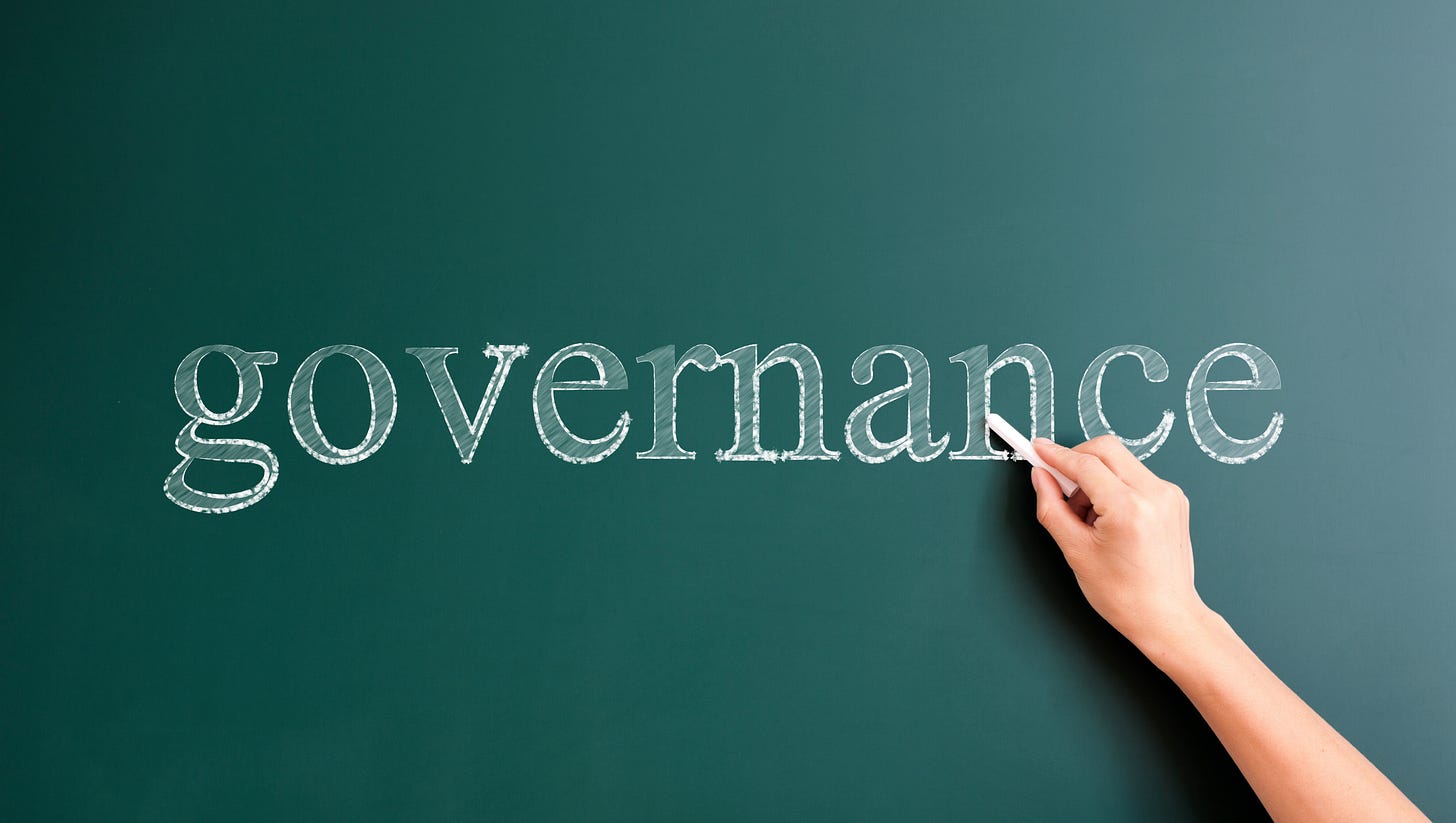Web3 Governance Forums Explained
On-chain governance, off-chain governance, hybrid governance, token-curated registries (TCRs) and DAOs
Governance is the systems and structures that enable decisions to be made. In a traditional organization, the executive team or board of directors may have the ultimate power to make decisions. Alternatively, shareholders may cast votes on proposals and amendments to enact modifications. In a political system, elected representatives may pass legislation that tries to embody their constituents' wishes.
In the web3 space, governance happens a bit differently due to the lack of a central controlling authority. Web3 governance forums refer to the mechanisms by which stakeholders make decisions about the operation and development of blockchain-based systems and protocols.
The following is a brief run through of some of the most common governance forums that have emerged in the web3 space:
On-chain Governance is the process of making decisions through the use of smart contracts and decentralized autonomous organizations (DAOs) on a blockchain network. This allows for a decentralized decision-making process where holders of the native tokens of a blockchain can vote on proposals to upgrade or change the protocol. Examples of projects that employ on-chain governance include:
Ethereum (ETH) where the community can vote on proposals to upgrade the network through a process called Ethereum Improvement Proposals (EIPs)
Tezos (XTZ) where token holders can vote on proposals to upgrade the protocol through a formal process of on-chain governance.
Off-chain Governance is the process of making decisions through non-technical means, such as through social consensus, community meetings, or off-chain voting. Off-chain governance allows for a more informal decision-making process, where stakeholders can discuss and debate proposals before voting on them. Examples of projects that employ off-chain governance include:
Bitcoin (BTC) where community members can suggest and debate proposals on forums and social media platforms, and then vote on them through a process called Bitcoin Improvement Proposals (BIPs)
Monero (XMR) that uses a community-driven development process where decisions are made through a combination of mailing lists, community meetings, and off-chain voting.
Hybrid Governance is a combination of on-chain and off-chain governance, where decisions are made through a combination of technical and non-technical means. This allows for a balance between decentralization and flexibility in decision-making. Examples of projects that employ hybrid governance include:
EOS, where token holders can vote on proposals to upgrade the protocol through a formal on-chain process, but also have the option to discuss and debate proposals through off-chain channels such as social media and forums
Polkadot (DOT), which uses a combination of on-chain and off-chain governance to make decisions. The community can submit proposals on-chain, and then discuss and debate them off-chain before voting on them.
Token-curated registries (TCRs) is a type of decentralized autonomous organization (DAO) that uses a token-based voting system to curate a list of items, such as a list of validators, or other types of data, that stakeholders can vote on. Examples of projects that use TCRs for their governance include:
Ocean Protocol (OCEAN), a decentralized data exchange protocol that uses TCRs to curate a list of data providers and ensure their data quality.
Gnosis (GNO), a decentralized prediction market platform that uses TCRs to curate a list of event oracles to ensure the quality of the data used to settle prediction markets.
Decentralized Autonomous Organizations (DAOs) is a digital organization that is run by its members, who hold its native token, and can vote on proposals to make decisions about the organization's activities. Examples of projects that use DAOs for their governance include:
MolochDAO, a decentralized autonomous organization that uses a token-based voting system to fund and manage Ethereum-based projects
MakerDAO, a decentralized autonomous organization that uses a token-based voting system to govern its stablecoin, DAI, and its collateralized debt position (CDP) system.
Today, there are many different types of DAOs, and they employ various forms of voting to pass resolutions. For more information about DAOs, the various voting structures of DAOs, check out the previous articles about DAOs:


